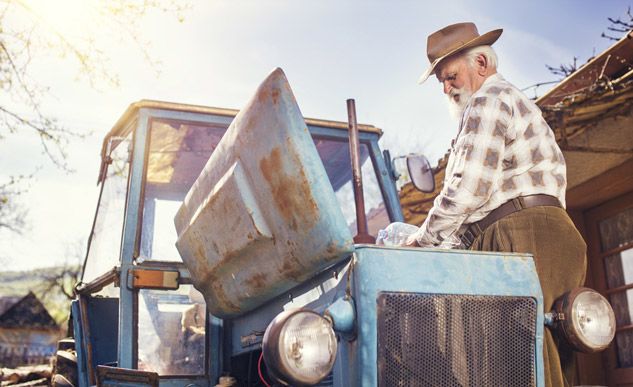
Working a piece of valuable equipment is laborious enough, but if you neglect small things they can become a big problem and stop you from getting the job done.
Tractors are no stranger to hard work on any farm and if you do not care for them properly then you will be sorry. Getting up and heading out to the shop to start the day, there are a few things on your tractor you should look at before the real work begins.
Here are six things that you should examine on your tractor every time you use it to keep it working at its best and save you money in the long run.
• Fuel Level: Although this may seem obvious, how many of you know of someone who runs out of gas in their car on a regular basis. Its happens every day and I can bet that if you get extremely busy, you will find yourself in at least one or two panic moments related to the amount of fuel in your tractor.
• Oil Level: We often forget that the oil in the engine of our tractor is just like the life blood in our veins. If you begin to run low on oil it can do many things that you might not be aware of. Low oil means the available oil is heating up more, wearing down faster and may even leave the engine without oil if you are working off camber or on steep terrain.
• Coolant: Keeping a big engine cool is not only the job of the coolant but also the radiator. If your coolant gets low and air is introduced into the system you will start a heating problem. If the radiator gets clogged with debris then you have a separate issue altogether. Coolant can also alert you to potential problems within the engine itself. Milky coolant is a potential sign of engine issues and if the cooling system begins to break down, hoses or internal parts, then you will most likely see particles indicating this in the coolant.
• Air Filter: This is also another simple but very important part to check as dust and dander from fields can clog the air filter, causing the engine trouble in the long run. Not to mention small rodents love tight, dark spaces to hide their prized possessions. You might just have no air intake at all from just one night in the barn!
• Belts: External components like the water pump and alternator do require a belt to run them on most tractors. The power steering and AC (if you are lucky enough to have an enclosed and air-conditioned cab) also run off the belted system on the engine and losing one belt could mean that several of these items will not work at all.
• Implements: If you have large implements attached to your tractor like a brush hog, tiller, harrows or any other large cultivating gear, you should look over it as well. I cannot tell you how many times I have started the tractor engine up, stepped off the side of that beast to inspect the bush hog there lay a small dog hiding in the shade of the cutter. These large rotating implements also need greasing inspection to make sure they will perform safely when you use them.
 Your Privacy Choices
Your Privacy Choices